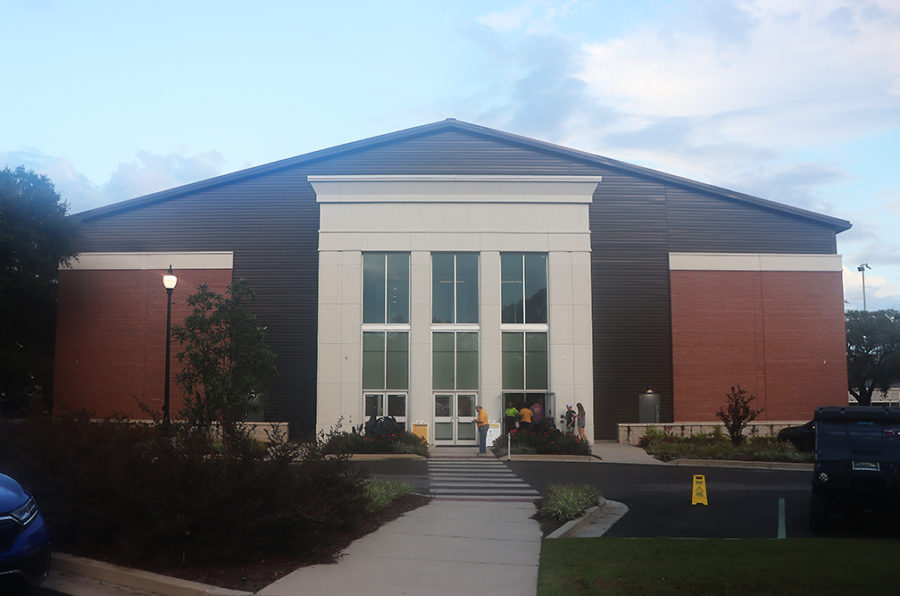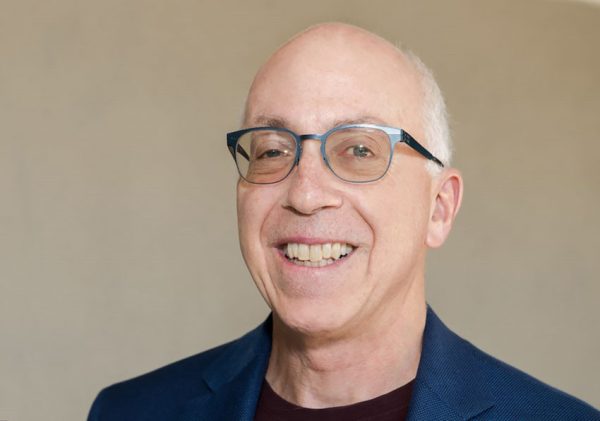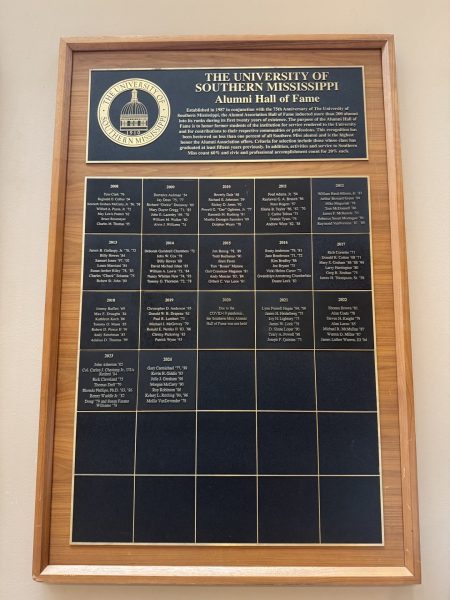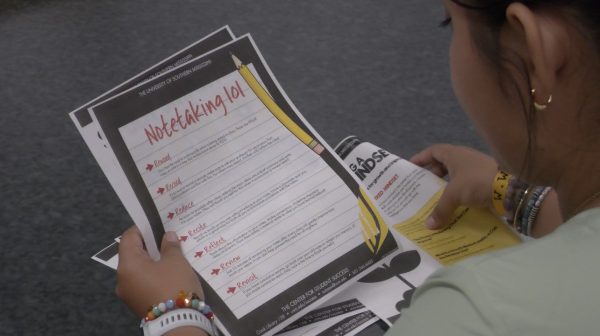Faculty Senate blindsided by USM statement on Volleyball Gym Welfare Scandal
The Wellness Center on the USM campus.
Late last week there were new developments in the alleged welfare fraud scandal. USM released a statement announcing their intentions to use campus facilities “for the benefit of Mississippi families and individuals.” The Mississippi Department of Human Services, IHL President Tom Duff and USM’s Faculty Senate responded, all voicing concerns about the university’s handling of the scandal and plans for restitution.
As previously reported, USM released a statement on Thursday, Nov. 3 responding to the welfare scandal. In it, they stated that they were “deeply troubled” by the scandal. The university said that they had done their due diligence in handling the construction of the volleyball stadium.
“Unfortunately, that due diligence did not and could uncover the alleged fraud by the MDHS grant fiduciaries…” they said.
The statement also revealed that they planned to propose to the Mississippi Department of Human Services a plan to to use campus facilities to help the local community.
MDHS released their own statement that same day, shooting down the proposal, calling it a violation of federal law which bars use of welfare funds for construction projects.
“MDHS cannot accept USM’s offer to utilize the building constructed with TANF funds in lieu of repayment of the funds, because we believe it to be a continued violation of the law and the purpose of the TANF program to help lift needy families out of poverty,” the statement read.
That same day, IHL President Tom Duff spoke to Mississippi Today. He criticized USM for not handling the project more responsibly. He also called for the school to repay the money they received.
“Right’s right, and wrong’s wrong. That’s just the way I look at it,” he told Mississippi Today.
SM2 reached out via email to James Coll, Chief Communication Officer at USM’s Office of Communications for a comment on Mississippi’s Today story. He responded with a statement from university President Joe Paul: “I respect and appreciate the position of IHL President Duff. The University will continue to follow the guidance of our governing board and cooperate with all state and legal entities to resolve this matter within legal constraints.”
The faculty senate called a meeting the following day, November 4, where they discussed USM’s statement and the response to the scandal. The senate drafted their own statement and shown it to Paul and Dr. Gordon Cannon, the interim provost. Then the university revised that statement and released it on Thursday.
Many members felt USM’s statement was an attempt to avoid responsibility and shift the narrative, and that their voices had been stifled. They also doubted the university’s ability to repay the money, as well as exactly how the university planned to use its facilities to help the community. Overall, they were frustrated with the situation, with the forces that allowed the fraud to happen, and with the university’s response.
Dr. Max Grivno, history professor at USM, said at the meeting that they drafted a “measured and thoughtful statement.”
“I am disappointed—not that the university issued a statement, after all that was our goal—I am however disappointed that when we extended them the courtesy of seeing a rough draft of the statement, they essentially preempted us. Which to my mind had the effect of denying the faculty a voice in this discussion.”
Grvino said up until now, there had been no formal statement from the faculty senate concerning the TANF scandal.
“It struck me that if the administration had wanted to respond in a way that honored the spirit of shared governance, they could have reached out and said perhaps we can draft a statement together. Or perhaps they could have released a statement immediately after ours,” Grivno said at the faculty senate meeting.
Grivno stated at the meeting that it felt like the university attempted to frame the discussion with the statement.
“That was certainly the impression that I had in the last paragraph of the university statement which said this is all we are going to say until the investigation is finished,” Grivno said at the meeting.
Grivno told SM2 Media that the first concern he had is that the university’s statement concluded in such a way that it seemed to put an end to the conversation, at least as it concerns making records available to the public.
“The second concern is that the University will not be released all of its documents concerning the scandal,” Grivno said. “The university stated that people could file FOIA requests, but those take time and effort from the people who want to know more about what happened.”
An issue that came up again and again (but the university has not addressed) is whether or not to repay the money they received. SM2 Staff has published an editorial on the matter, and the sentiment was echoed by Duff. However, some at the senate meeting had reservations about the idea. Even if the university could repay the money, they were unsure if it would actually go to the right place.
Mississippi Today also released other information regarding where the welfare dollars were spent around the school. The news outlet reports that the volleyball gym “wasn’t the only project supported by welfare dollars.”
According to Mississippi Today, the university entered into a similar lease agreement for $200,000 to renovate the Jim and Thomas Duff Athletic Center’s M-Club Room. Mississippi Today states that a forensic audit shows that the welfare department paid USM an additional $840,000 in welfare funds for a “Healthy Choices Program.” Documents obtained by Mississippi Today show that USM entered TANF grant agreements with both MDHS and Nancy New’s non-profit from 2016-2019 called “Student Development Program” which paid for “specialty performance drinks, pop sockets, and massages.”
Additionally, Mississippi Today reported that the audit questioned $1.2 million in “externships” for students in the School of Psychology that New’s non-profit paid to USM as well as $231,986 paid from Families First for Mississippi to help fifth graders develop healthy eating habits.
Your donation will support the student journalists of University of Southern Mississipi. Your contribution will allow us to purchase equipment and cover our annual website hosting costs.


































